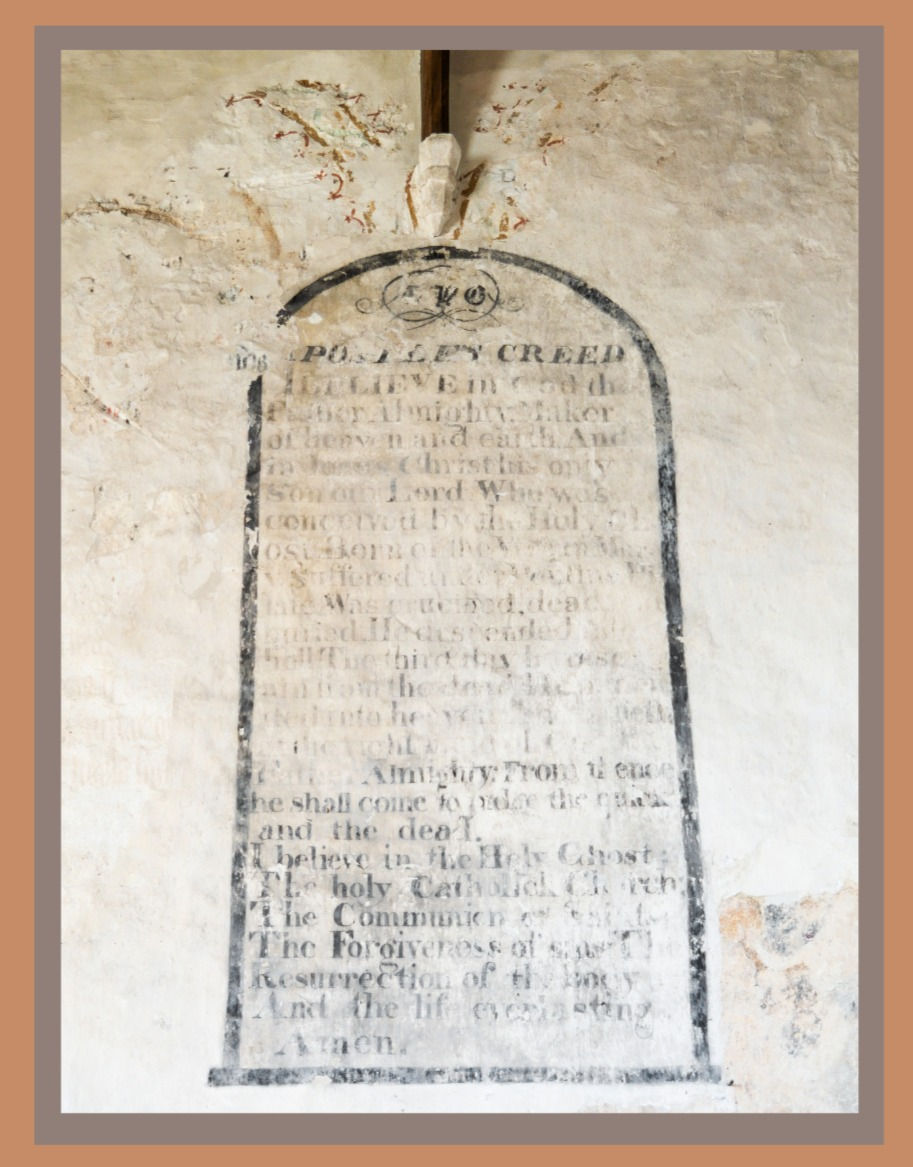Jesus Suffered and Rose from the Dead
- Jimmy Kinnaird

- Apr 18, 2024
- 6 min read

“Then he opened their minds to understand the Scriptures, and said to them, “Thus it is written, that the Christ should suffer and on the third day rise from the dead,” (Luke 24:45–46, ESV)
He suffered under Pontius Pilate,
Was crucified, died, and was buried;
He descended into hell.
The third day he rose again from the dead.- The Apostle’s Creed, lines 6-9
For many, including me, the death and resurrection of Jesus of Nazareth is the bedrock of the Christian faith. That Jesus suffered and rose from the dead is the fifth essential element of the Gospel of the Kingdom of God. Let me outline some reasons for this belief and how it is so central to the good news of the kingdom of God.

First, let’s look at Jesus’ suffering. Jesus’ life and teachings challenged the religious and political authorities of his time. They challenge us in our time as well. It seemed like at some place and time every religious, economic, social, and political faction wanted either to co-opt Jesus or to do away with Him. He spoke of love, forgiveness, and a coming Kingdom of God that was open to all who would receive Him. These teachings encouraged the masses of people, but also upset the status quo.
As Jesus’ ministry gained popularity and traction with the crowds He would periodically remove himself from them. As His popularity grew, so did his exposure. Jesus didn’t want to come out publicly too soon. He foretold his disciples that he would have to suffer and die. The first occurrence of this was when Jesus and the disciples were in the region of Caesarea Phillipi and Jesus asked who they believed He was. After the confession of Peter that Jesus was the Messiah, was when Jesus began to tell them about His suffering, death and subsequent resurrection.

“From then on Jesus began to point out to his disciples that it was necessary for him to go to Jerusalem and suffer many things from the elders, chief priests, and scribes, be killed, and be raised the third day.” (Matthew 16:21, CSB)
Luke shorten’s Matthew's account. Jesus reminds them of this at least three more times (Mark 9:30-32; Matthew 20:17-19; and Matthew 26:1-2) just before the religious leaders enacted their plot to eliminate Jesus. Yet each time the disciples’ reaction was one of confusion or fear.
When Jesus met at night with Nicodemus, as described in the Gospel of John, He told Nicodemus that “Just as Moses lifted up the snake in the wilderness, so the Son of Man must be lifted up, so that everyone who believes in him may have eternal life. For God loved the world in this way: He gave his one and only Son, so that everyone who believes in him will not perish but have eternal life.” (John 3:14–16, CSB)
So it was not a surprise to Jesus that he would suffer and die. He tried to make it an “open secret” with the apostles, but they could not comprehend it, yet. Even the powers of darkness could not see this plan of God. As Pau wrote: “None of the rulers of this age knew this wisdom, because if they had known it, they would not have crucified the Lord of glory.” (1 Corinthians 2:8, CSB)
Second, let’s look at Jesus' death. The Scripture says that Jesus was crucified. His death by crucifixion is well attested by both Scripture and valid non-Christian sources. I don’t want to get bogged down into an apologetic, but here are just a few of the extra-biblical authors who reference the crucifixion of Jesus of Nazareth outside of Jerusalem.
Tacitus: A Roman historian writing around 110 AD, Tacitus mentions the execution of Jesus by Pontius Pilate in his work "Annals" [Tacitus Annals]. This is considered a strong confirmation of the crucifixion by a non-Christian source.
Josephus: A Jewish historian from the 1st century AD, Josephus mentions Jesus in two passages in his works, "Antiquities of the Jews" and "Jewish Wars" [Josephus Antiquities of the Jews, Josephus Jewish Wars]. The authenticity of these passages, particularly the longer one, is debated by scholars, but they do offer some information about Jesus from a Jewish perspective.
Pliny the Younger: A Roman governor, Pliny the Younger, wrote letters to Emperor Trajan around 112 AD. In one, he discusses how to deal with Christians, mentioning their belief in a man named Christ who was executed [Pliny the Younger Letters].
In fact, the crucifixion is easily one of the most secure historical facts of the New Testament. As important as the question of Jesus’ death is, a question of greater importance is, “Why did Jesus need to suffer and die?”

Third, let’s look at the meaning of the suffering and death of Jesus. The suffering of Jesus of Nazareth on the cross is seen as a sacrifice. It is actually viewed as the complete, one and only sacrifice for the forgiveness of sins. The biblical teaching is that humanity is inherently flawed by sin and therefore separated from the holy creator God. Jesus, through his sinless life, willingly took on the burden of humanities sin, enduring immense physical, emotional and spiritual pain reconciling us to God.
Jesus is the only one who could do this. He is the Son, the second person of the triune God. He took on flesh and lived the life of a sinless man and therefore was able to become the ultimate sacrifice for the sins of humanity. As the Scriptures say:
“He made the one who did not know sin to be sin for us, so that in him we might become the righteousness of God.” (2 Corinthians 5:21, CSB)
This is theologically called the penal substitutionary death of Christ. God is holy, righteous and love. There are moral principles that are inherent in the framework of reality that come from God Himself. Justice is one of these.
God could not just forgive sins, there had to be a payment. The scales of justice needed to be balanced. If humanity were to pay, if each of us were to pay for our own sins before a holy, just and yes, loving God, we would be banished to hell. Hell is what we would deserve. Friends, hell is what we deserve. But God, rich in mercy and love, sent his son, born of a woman, born under the law, so that He might live and die for us in our place. That is the substitutionary part. John the Baptist called Him “The lamb of God who takes away the sin of the world” (John 1:29, CSB). Jesus took the punishment for sin in our place. That is the penal part. Jesus’ suffering and death acts as a bridge, allowing for reconciliation and a restored relationship with God.
But, how do we know that the suffering and death of Jesus actually satisfied the justice of God? How do we know we truly can be forgiven? Well, we wouldn’t if Jesus had stayed dead in the grave. The Apostle Paul stated that himself when he wrote “If Christ is dead, you are still in your sins.” But Paul went on to say, “But as it is, Christ is raised from the dead.” (1 Corinthians 15:17, 20).

Last, let’s look at what the resurrection of Jesus means to us as believers. The resurrection of Jesus Christ assures us that death is not the end. It offers the hope that through faith in Jesus Christ, believers can experience eternal life with God. We can have a new beginning, to live free from the failures and regrets of the past and to look forward into the future. No longer are you estranged from God. Through Christ you are adopted into his family and made a child of God. Nothing can ever take that away.
This passage from Paul’s letter to the Ephesians is so helpful and hopeful. Please take a moment to read and to really let it get into your heart.
“But God, who is rich in mercy, because of his great love that he had for us, made us alive with Christ even though we were dead in trespasses. You are saved by grace! He also raised us up with him and seated us with him in the heavens in Christ Jesus, so that in the coming ages he might display the immeasurable riches of his grace through his kindness to us in Christ Jesus. For you are saved by grace through faith, and this is not from yourselves; it is God’s gift—not from works, so that no one can boast. For we are his workmanship, created in Christ Jesus for good works, which God prepared ahead of time for us to do.” (Ephesians 2:4–10, CSB)
This is what God has done with you when you believe and receive Jesus as Lord and Savior. You are saved by grace as a gift from God. You are to then live your life as a gift back to Him. Your life has meaning and purpose both now and for eternity.

So when you think of the tremendous sacrifice of Christ, think of what it has done for you. This will cause your heart to swell with gratitude and love. For God loves you yesterday, today, tomorrow and forever. Jesus will never leave you nor forsake you. The resurrection is proof positive that He will keep his word.





Comments